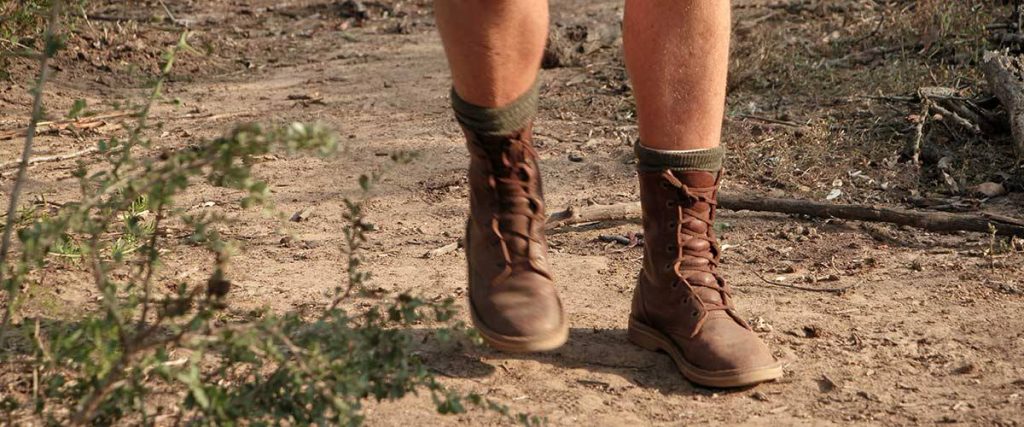These kinds of trips are becoming increasingly popular. A few decades ago, it was associated with a great deal of financial and organizational effort, today there are countless offers for every taste and every budget.
On a professionally organized safari trip, guests usually stay in their own lodge in a supervised camp, a guide is available as a contact person at any time. However, this does not mean that you should start your adventure completely unprepared.
Most organizers like to give tips on how to get there, how to deal with the animals properly, which can be observed and answer questions about the destination country and the accommodation – but what you pack is in most cases up to you.
Regardless of which countries you plan to travel to or whether a tour is even on your program: Creating a packing list is always a smart thing. It helps you not to forget anything you need during your safari and to be equipped for every conceivable situation.
The term “traveling light”, meaning traveling with as little luggage as possible, has become synonymous with unencumbered travel – a style of travel that is becoming increasingly popular. Of course, it makes sense to proceed strategically when packing and to simply leave heavy, bulky, or rarely used items at home and, if necessary, to buy them at the holiday location.
However, when preparing for your trip, keep in mind that not all things that might be missing during the tour can simply be bought anywhere in the world. This is especially true for important personal things like medication that you have to take regularly, high-quality technical equipment, or special equipment.
Money

Image source: pexels.com
You can’t get anywhere without money – so this is the first and most important item on your packing list.
Documents
Of course, your passport and the documents you received from the tour operator must always be on the trip: booking confirmation, tour descriptions, possibly additional tickets, and vouchers. It also makes sense to take a vaccination card, health passport, or other documents that affect your health with you. If you suffer from a particular illness that requires you to take the medication with you, a medical certificate or a prescription for the medication you need can be helpful.
Hygiene

Image source: pexels.com
Personal hygiene when traveling is a thing that you should not neglect when planning your trip. It is not always easy to buy familiar hygiene products at the holiday location, and some of them are either not available or are very difficult to obtain.
However, these are articles that are very practical when you are on the go: wet wipes, for example, are a great thing if you want to have a snack during a long, exciting day, but there is no possibility of washing your hands. They are also good for refreshment in between to cool the neck or face.
The same applies to moist toilet paper: it is extremely practical in areas with a lack of water or a lack of washing facilities. The easiest way to store everything in a toiletry bag is to have your hygiene items at hand at all times. Liquid and creams that you want to carry in your hand luggage are best put in a plastic bag, as you have to show them in the airport security check.
Devices and binoculars
Whether smartphone or professional camera: You should not go on a safari without photographic equipment. So that everything works well and you can save your photo material, do not forget to use an external hard drive, SD cards, or the like. Power supplies for your notebook, tablet, or smartphone should also be in your luggage, and ideally, you should get a suitable socket adapter depending on your travel destination.
These are usually available on-site, but may be a lot more expensive than buying them online or at home. Also, without which no safari could be perfect is binoculars. As most animals will not get close to you, it is necessary to have quality binoculars, which has at least 10x magnification. If you don’t already have one and want to buy, Targetfrog.com offers you a detailed buying guide.
Clothes

Image source: sportingclassicsdaily.com
Suitable clothing is above all light, tearproof, waterproof, breathable, and discreet in color – ideally beige, light brown, olive green, and similar natural colors. The reason for this is not difficult to guess: you want to watch wild animals and not scare them away.
In addition, the clothing worn on the safari should protect you against strong sunlight, thorny branches, and mosquitoes. Water-repellent functional jackets that also protect against wind and cold are a good addition to light clothing, underwear and shirts should also be breathable and made of light, fast-drying material.
Don’t take too many items with you – most lodges and camps have a laundry service so you can have your clothes cleaned easily. It is also possible to wash smaller items such as T-shirts, socks, and underwear yourself. You don’t even have to pack your own cleaning product – most textiles can also be washed out with a mild shampoo or shower gel, and everything dries quickly in the sun anyway.
Medicines
Medications that you should take with you for the most common diseases when traveling are pain relievers as well as remedies for diarrhea, vomiting, and nausea.
Medications that you have to take personally should be carried in sufficient quantities, including a small reserve: Unfortunately, there is no guarantee that you will receive the medication you require in the usual way at the destination. It does not make sense to make recommendations for certain active ingredients, because there are great differences in tolerability and effectiveness, and not all medications are equally suitable for everyone.
You should, therefore, discuss with your family doctor in advance which specific preparations are best to pack on your safari trip. However, it is advisable not to overdo it with the first-aid kit – the most common medicines are available almost everywhere in the event of an emergency. Since medication that is not required is disposed of after its effectiveness, it makes sense to donate it to a local medical facility at the end of the trip – this is especially true for sterile single-use syringes and antibiotics.
Shoes

Imag source: sportingclassicsdaily.com
Comfortable, water and dirt repellent footwear, as well as proper insoles – such as those offered by Protalus.com – are best suited for a safari trip. Keep in mind that you will be on the road for several hours a day, and hardly on paved roads. Ankle-high trekking or outdoor shoes are therefore a good choice. Another comfortable pair of shoes, which you can wear during the flight, in the evening or for city visits, weigh a little on the baggage but pay off – after all, you won’t find good shoes everywhere. Ideally, you pack your shoes in your own shoe bag or plastic bag to protect the rest of your luggage.
Conclusion:
Safari is sure to be one of the most beautiful and exciting trips you will ever have. Do not let this experience to be spoiled by anything, but pack at home everything you need and enjoy the wildlife.





















